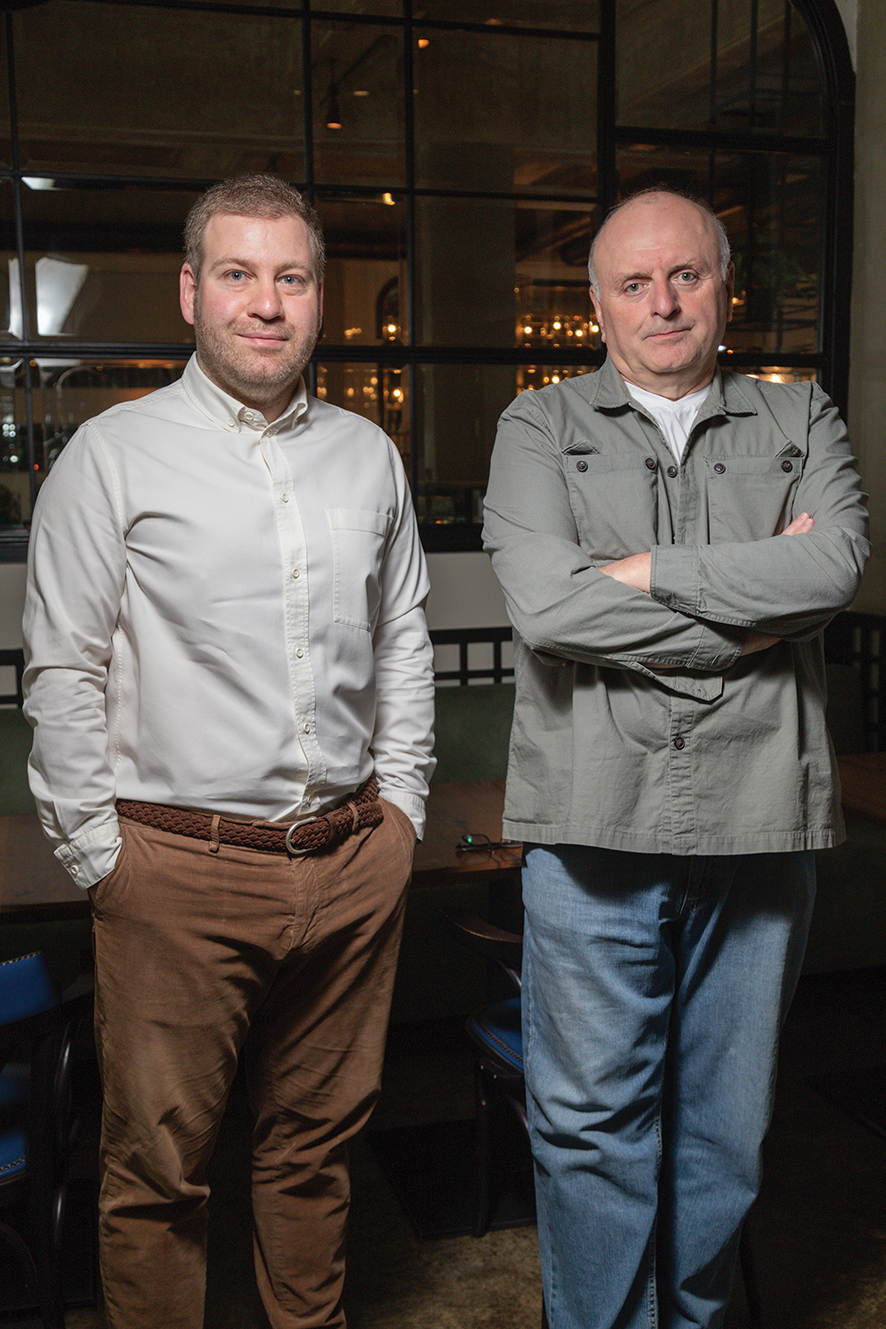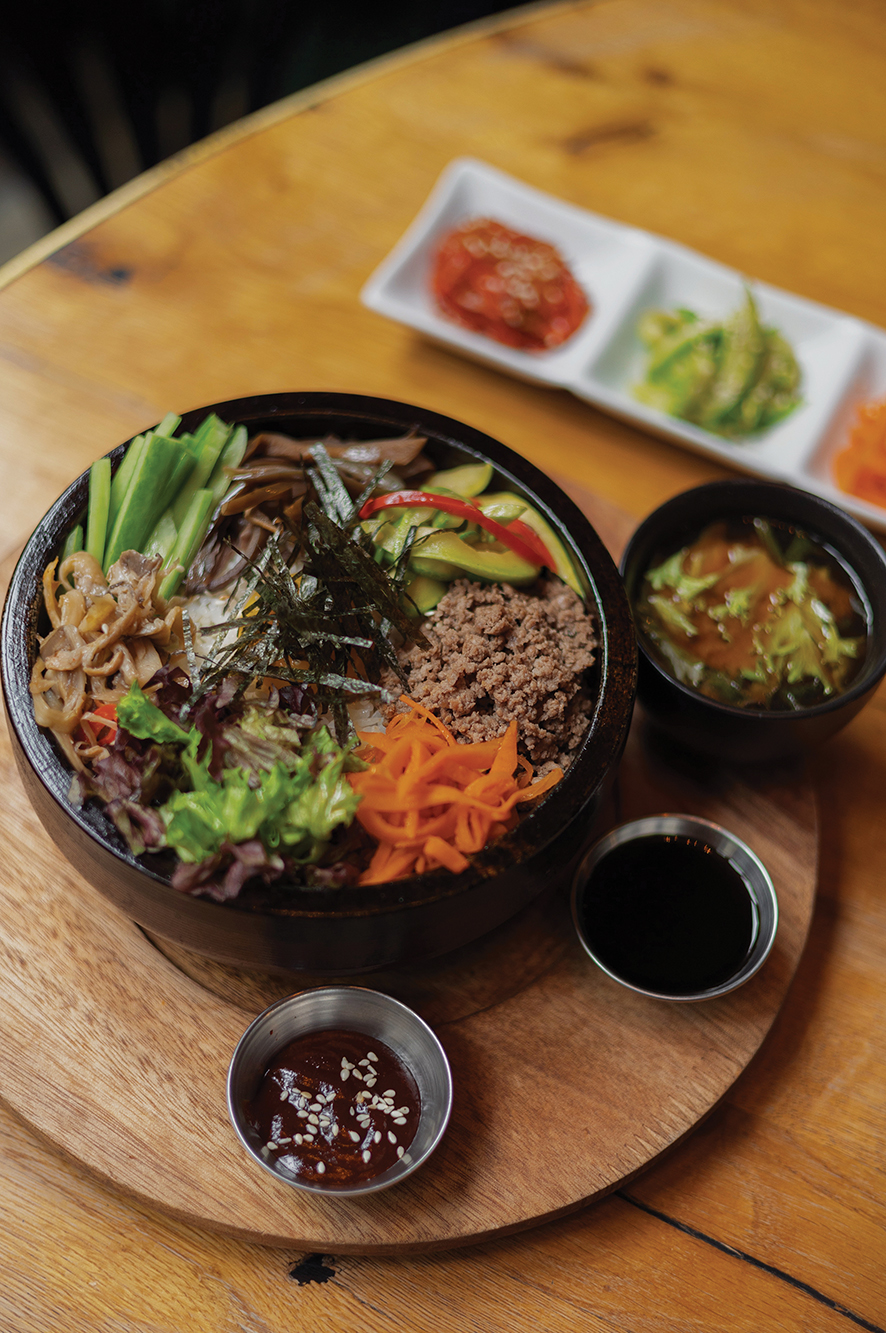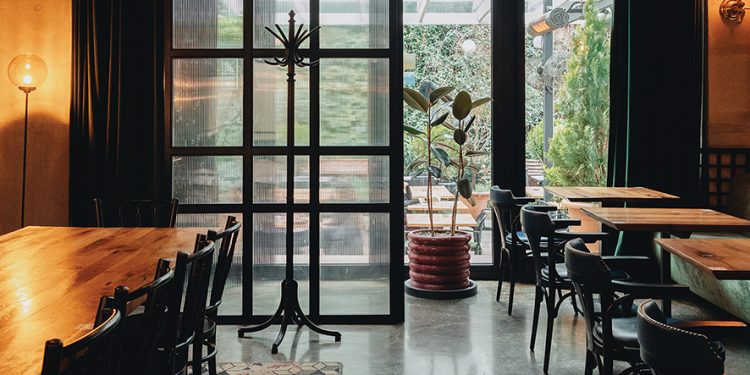In April 2014, Tbilisi witnessed the birth of a culinary gem, Strada, founded by three friends driven by their shared passion for good food—Vano Mkheidze, Gia Lomaia, and Temur Beridze. Despite their lack of direct involvement in the restaurant business, their love for dining out and exploring different cuisines ignited the idea of creating something unique. In a recent interview, they shared Strada’s journey.
“The three of us had different experiences in the restaurant industry, but we were passionate consumers of good food for many years,” says Vano Mkheidze. “Eventually, we decided to transform this emotional connection into a business venture. It was truly inspiring.”
“There are two approaches in business. One is to follow directives and believe they are the truth. The other, more challenging approach is to detach oneself from personal views and analyze everything with a cold, marketing-oriented perspective,” notes Gia Lomaia. “In this case, we chose the former. We believed that what we loved and enjoyed would be relevant and promising.”

Inspiration
One of the key inspirations behind Strada’s concept was Isaac Correa, a renowned American chef known for his innovative restaurant concepts. Lomaia reminisces about the influence of Correa: “Isaac served as our foundation. His restaurant concepts were incredibly innovative and distinct from the usual.”
Strada’s founders aimed to shake up Tbilisi’s dining scene by creating a comfortable and inclusive environment. Mkheidze explains: “Our approach was not fine dining or excessive pretentiousness, but a comfortable atmosphere, both in terms of menu and environment.”
Innovation
Mkheidze, remembers that transformation of Tbilisi’s dining scene: “When we arrived a decade ago, the restaurant scene in Tbilisi was quite distinct. Excluding Georgian establishments and traditional eateries, our segment, which became the Strada segment, consisted mostly of individualistic projects. These projects were often named after their owners or chefs, and customers visited as guests of the owner, reminiscent of southern Italy. However, for a city as large as Tbilisi, we felt this approach was increasingly abnormal.
“Our aim was to create restaurants that were open and accessible to everyone, without the need for special connections. We wanted to provide a comfortable atmosphere, both in terms of the menu and environment. Comfort was the essence of the experience we wanted to offer our guests. Moreover, we believed that the main area of the restaurant should be smoke-free, which was unthinkable ten years ago but crucial for creating a comfortable space. These were the principles that mattered to us.”
Strada’s Expansion and Distinctive Dining Destinations
Everything began with the opening of the first Strada on Sandro Euli Street, situated in a vibrant neighborhood. In discussing the expansion, Mkheidze reflects on the unique character of each location, shaped by its surroundings and architectural heritage.
“Each location has its own character, shaped by its surroundings and the building itself,” he explains.
The journey of expansion began with a second location opened on Marjanishvili Street in 2015.
“We didn’t deliberately seek a place on the right bank, just as when we opened the first location, we didn’t restrict ourselves to the traditional Vake-Vere center. The search was for quality spaces, a less conventional approach given the trend of converting apartments into commercial spaces.”
After extensive searching, a gem was discovered at Marjanishvili St. 5. Negotiations were lengthy, but the team saw the potential of the space.
“Everything that followed wasn’t exactly part of our plan,” Mkheidze adds. “But we could see that this location had significant growth potential.”
The space, a former Soviet printing plant established in the 1930s as the Printing Word Combine, a branch of The Soviet Ministry of Book Printing, greatly influenced the design.
“Rooms Design Studio, our partner in designing Strada, really showed how much emphasis can come from the character of the space itself rather than just the initial concept,” Mkheidze says.
In 2018, Strada Vake opened on Mosashvili Street, drawing attention for its unconventional corner location and cozy terrace. “All three Strada locations have different designs and atmospheres,” Mkheidze reflects. “But we hoped to create a common thread among them.”

Unexpected Additions: Korean Cuisine
Gia Lomaia sheds light on the choice to add Korean cuisine.
The inclusion of Korean cuisine on our menu was entirely spontaneous,” he begins. “To be honest, Isaac himself didn’t agree with this approach.”
Unlike markets in America and the West, where cuisine-specific restaurants are common, the post-Soviet market in Georgia expects variety from establishments.
“Here, if there’s an interesting establishment, consumers expect it to offer a variety, including sushi, Korean, and pizza,” Lomaia explains.
While the market is evolving with the emergence of authentic Korean and Japanese restaurants, the decision for Strada was justified.
“Our guests are highly satisfied,” Lomaia notes.
The decision also stemmed from personal preference.
“Korean cuisine was also a personal preference of ours,” Lomaia reveals. “We were big fans of Korean food.”
Drawing on their two-decade-long appreciation for Korean cuisine, they leveraged personal connections to master the specific culinary style.
“We’ve been frequenting Korean restaurants for twenty years,” Lomaia shares. “As Korean cuisine is very specific, it was challenging for our staff to master it. We asked a chef from Korea to join us, and he stayed with us for a year.”
The Evolution of Strada’s Menu
Strada’s menu is a dynamic reflection of its commitment to innovation and quality.
Gia Lomaia and Vano Mkheidze discuss the dynamic process of managing Strada’s menu, which is both creative and meticulous.
“The menu is constantly evolving; it’s a continuous process,” Lomaia explains. “There’s a core selection that’s very popular and remains untouched, but we introduce changes regularly. We experiment, observe reactions, sometimes dishes stay, sometimes they go. It’s an ongoing process.”
Mkheidze adds another layer to this process, emphasizing the importance of maintaining quality.
“Managing the menu is not just a creative process; it’s also a matter of maintaining the highest quality, which is crucial for our guests,” he notes. “In Strada’s case, with three restaurants and 40 cooks across them, maintaining quality is the backbone of our ten-year success.”
He elucidates the complexities of maintaining quality across multiple locations, highlighting the enterprise aspect of the process.
“Adding a dish to Strada is very complex.” Mkheidze says. “Our stability in this market for so many years relies on maintaining this quality. Therefore, every new addition to the menu undergoes rigorous testing to ensure that it meets our high standards consistently across all our locations. This is the challenge that sets Strada apart from many other restaurants.”
Maintaining Excellence
Gia Lomaia and Vano Mkheidze reveal the intricacies of maintaining quality control at Strada, emphasizing the daily challenges and the importance of guest feedback.
“This is the toughest aspect of our job, a daily test, a daily control,” Lomaia begins. “One of the challenges is that the quality of ingredients can be inconsistent; suppliers don’t always have a steady stock. We have to improvise while maintaining our main principle: quality. It’s quite a challenge.”
Mkheidze adds to this, highlighting the significance of loyal guests in quality control. “Our most effective quality control mechanism is our loyal guests,” he explains. “Many of them visit us 3-4 times a week. They have their favorite dishes, and they’re very sensitive to even the slightest changes. We intervene in processes repeatedly because our guests’ feedback is crucial to us. They show loyalty to Strada, and this acts as our test mechanism, catching almost all errors, which, despite our efforts, still occur.”
Lomaia then touches on the challenges of maintaining quality in a non-mechanized environment.
“Mistakes happen because we’re a completely non-mechanized enterprise, reliant on human hands. Unintentional mistakes occur, but the worst is when we don’t react appropriately to our own mistakes. Every complaint or feedback becomes the subject of detailed discussion, and we take that very seriously. It’s quite challenging psychologically, but it’s a good strategy in the long run.”
Celebrating Ten Years
“The main achievements in these ten years are our team and our guests,” Mkheidze asserts. “Today, Strada has a team of over two hundred people. It’s a fantastic team, especially considering the turnover rate in our field. Many of our employees start here as their first job at a young age and later move on. But there’s a core group that has been with us for many years. They’re like family to us, and they’re the most valuable asset to our brand. They enable us to achieve our second major milestone: our guests.
“Perhaps the most significant thing in these ten years is that many of our guests don’t see Strada merely as a place to eat; they see it as a promise. When they come here, they expect quality food, a friendly atmosphere, and excellent service. They know that, no matter what happens, Strada will deliver on that promise.”
Strada’s Message of Gratitude and Commitment
In sharing their message with the team and guests, Gia Lomaia and Vano Mkheidze express gratitude and reaffirm Strada’s commitment to consistency and quality.
Mkheidze emphasizes his appreciation for the loyalty and resilience shown by both the team and the guests. “That’s our promise, and we want to say a big thank you to both our team and our guests,” he acknowledges. “During Covid, apart from the financial and infrastructural challenges, the most heartening moment for us was the first day we reopened and saw a full house. We had anticipated changes in customer behavior, but seeing our team and restaurant full on that first day was incredibly rewarding. For this, we’re truly grateful to our team and our guests.”
“We can guarantee that our approach will never change,” Lomaia asserts. “We’ve weathered the storm of Covid, which was an existential crisis, without compromising on any principle. We’ll stay true to our promises, and our guests will continue to get what they come to Strada for.”
Lomaia adds a note on their response to challenges during Covid, highlighting their dedication to improving the guest experience. “During Covid, we took the opportunity to renovate our hall, illustrating our readiness to invest in our guests’ comfort. Despite the challenges, our guests missed Strada emotionally, not just as a place to eat.”
Oro by Strada
Oro stands out with its focus on Georgian cuisine, a departure from Strada’s offerings of European and Pan-Asian dishes. Vano Mkheidze and Gia Lomaia discuss the expansion of Strada’s sister restaurant, Oro, emphasizing the commitment to quality and authenticity.
“We’ve just opened two new facilities, and, interestingly, they’re both next door to existing Strada locations. We see this as a synergy rather than competition, as each serves different purposes. One is on Marjanishvili, next to Strada, while the other adjoins Strada on Sandro Euli. Oro promises authentic cuisine in a quality environment, filling a gap we saw in the market. We’re focusing on maintaining high standards and preserving authentic tastes, which is essential to us.”
Lomaia delves into the challenges of maintaining authenticity, particularly with adjika. “Our struggle now is with the complexity of spices,” he admits. “They come in July-August, and we go to great lengths to ensure their quality. Thankfully modern technologies have proven to be compatible with our kitchen.”
He admits that “maintaining the taste of childhood is crucial to us, as many guests have commented that it takes them back to their childhood.”
Mkheidze concludes by highlighting the difference in concept development between Strada and Oro. “Unlike Strada, where the concept was already established, we had to build the concept for Oro from scratch,” he explains. “Our focus is on maintaining consistency and quality across all Oro locations, ensuring that the standards we set today will remain the same in ten years’ time.”
A Decade of Culinary Excellence
As Strada reflects on its journey over the past decade, one thing is clear: Its commitment to passion, innovation, and excellence has set it apart in Tbilisi’s culinary landscape. As they embark on the next chapter of their culinary adventure, one thing remains certain: Strada will continue to delight diners with its unique blend of flavors and unwavering dedication to quality.
By Kesaria Katcharava














